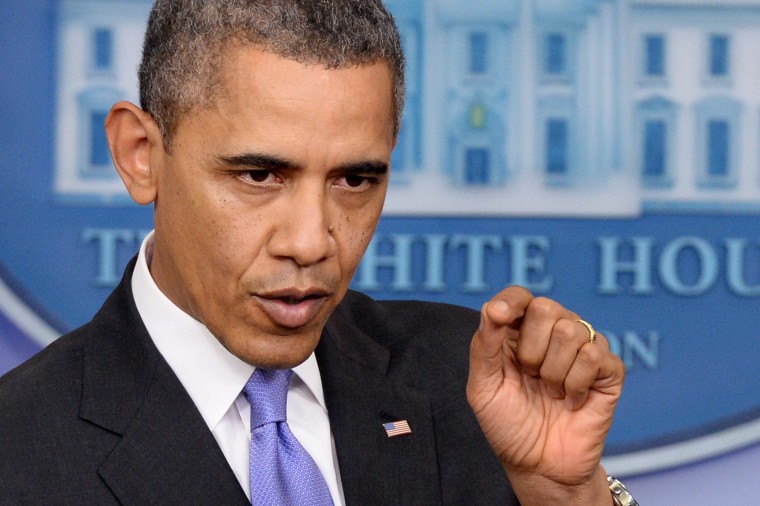For Mr. Obama -- who in the past five years has grown dependent on the N.S.A. for countering terrorist threats, and dependent on Cyber Command for buying time to deal with Iran and other long-term adversaries -- the choices he makes in the next few weeks may well define America's approach to national security long after his term is over. But it is a major balancing act between a security system that he has come to depend on and principles of privacy that he has said are dear to him. One of the five experts in the advisory group, Michael Morell, says the task is possible. "We are not in any way recommending the disarming of the intelligence community," said Mr. Morell, who retired over the summer as deputy director of the C.I.A. But that is different from saying the choices are cost free.
Obama has a decision to make on NSA
Following recommendations from his independent review board, coupled with a key court ruling, the president may have to set a new surveillance course.

Over the summer, in the face of international criticism following leaks from Edward Snowden, President Obama assembled a five-member panel called the Review Group on Intelligence and Communications Technologies. The members were tasked with reviewing existing U.S. surveillance policies and recommending possible reforms to the White House and Congress.
Cynicism from skeptics was understandable. Many suspected the review was a slow-motion "whitewash," intended to distract the public, delay the controversy, and buy some political time for the administration. The recommendations, critics feared, would amount to little more than, "Keep up the good work."
But that's not what happened. The independent panel, led in part by Richard Clarke, a national security official in the Clinton and Bush/Cheney administrations, made 46 serious recommendations over 300 pages, demanding new layers of accountability and a series of new restrictions -- including a "wholesale restructuring" of the metadata collection of all domestic phone calls.
A "whitewash" this wasn't.
But in practical terms, this wasn't the end of the process; it was the beginning. Now that the Review Group has made nearly four dozen recommendations, it's up to policymakers to consider what to do next. David Sanger explains today that President Obama, in particular, has some decisions to make.
That the release of the panel's report coincides with a federal court ruling that said the NSA's program of gathering data on all domestic telephone calls is probably unconstitutional makes the challenge that much more acute.
For his part, Slate's Fred Kaplan argued, "It's a good bet that, in the next few weeks, President Obama will impose some serious reforms -- and ask Congress to enact a few more -- on how the National Security Agency scoops up and stores data from the phone and Internet records of American citizens."
With holidays and vacations approaching, those efforts probably won't come too soon. White House Press Secretary Jay Carney told reporters this week, "Over the next several weeks, we will be reviewing the review group's report and its 46 recommendations as we consider the path forward, including sorting through which recommendations we will implement, which might require further study, and which we will choose not to pursue. It's a substantive, lengthy report, and it merits serious review and assessment. When we finish the internal review, the overall internal review in January, the president will deliver remarks to outline the outcomes of our work."
If this sounds like it'll take a while, that's because it will.
Postscript: Whether you consider Edward Snowden a villain or a hero, these developments are a reminder that his leaks were extraordinarily consequential. For good or ill, had it not been for the materials he divulged, there almost certainly would have been no review, no court case, and no national conversation about the scope of federal surveillance programs.